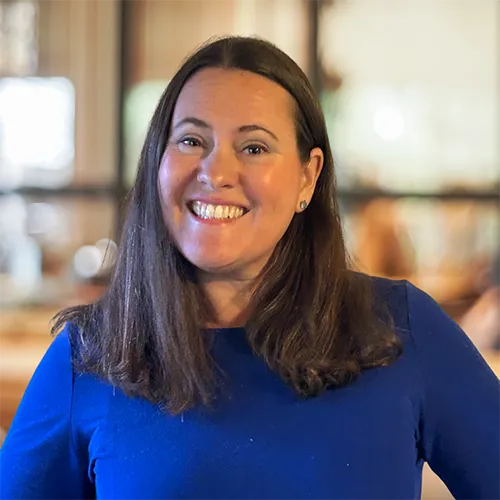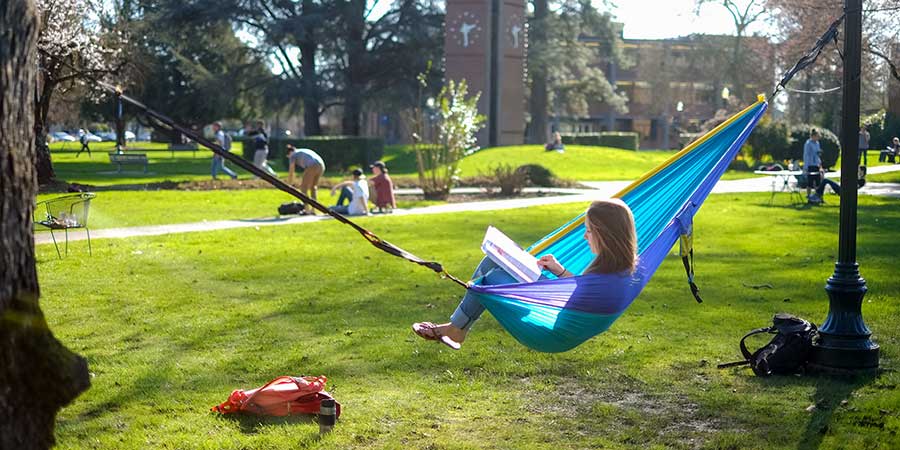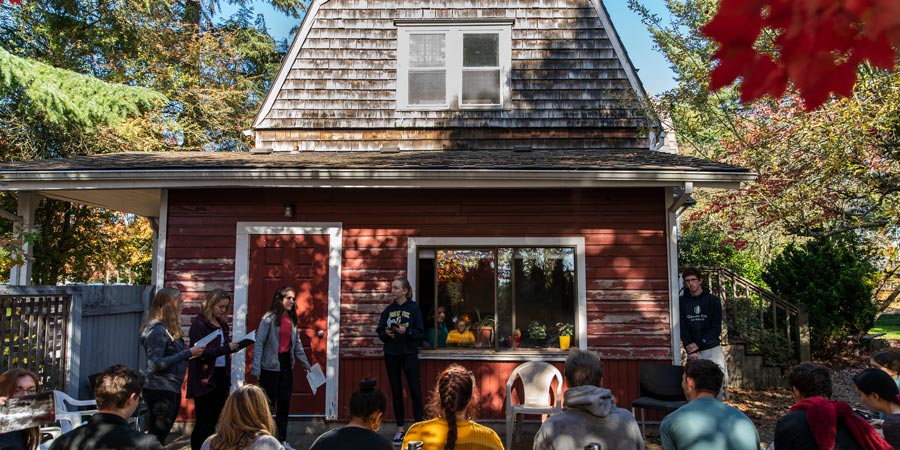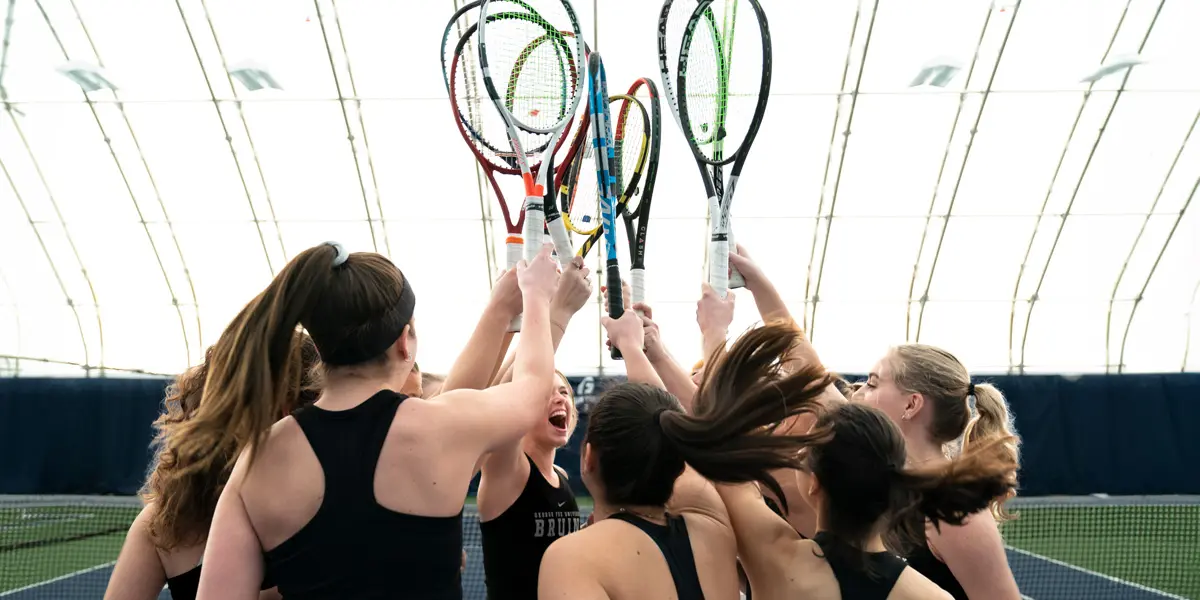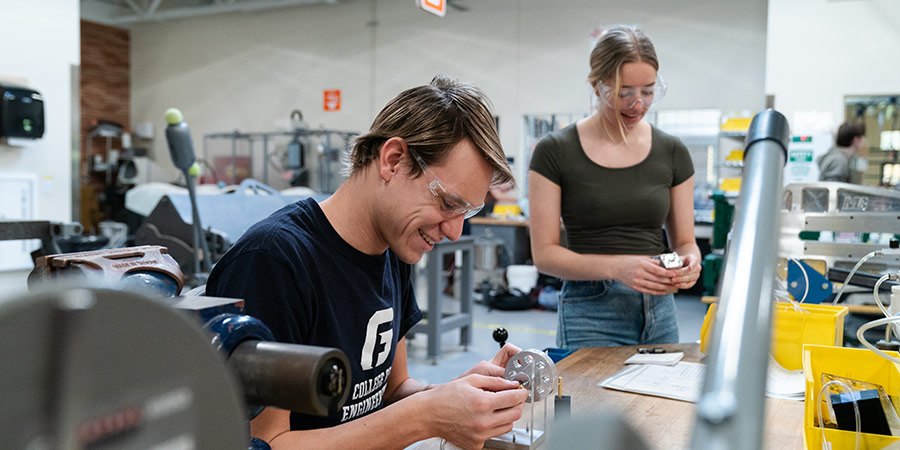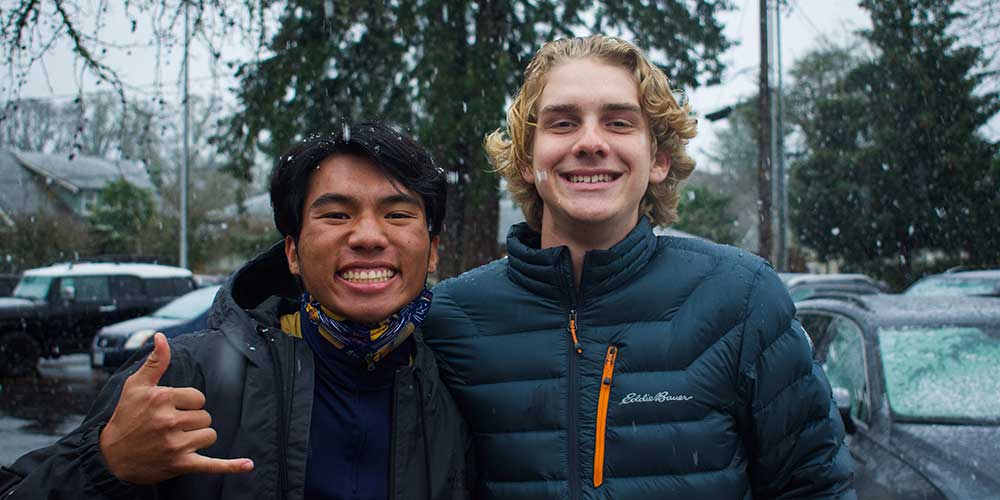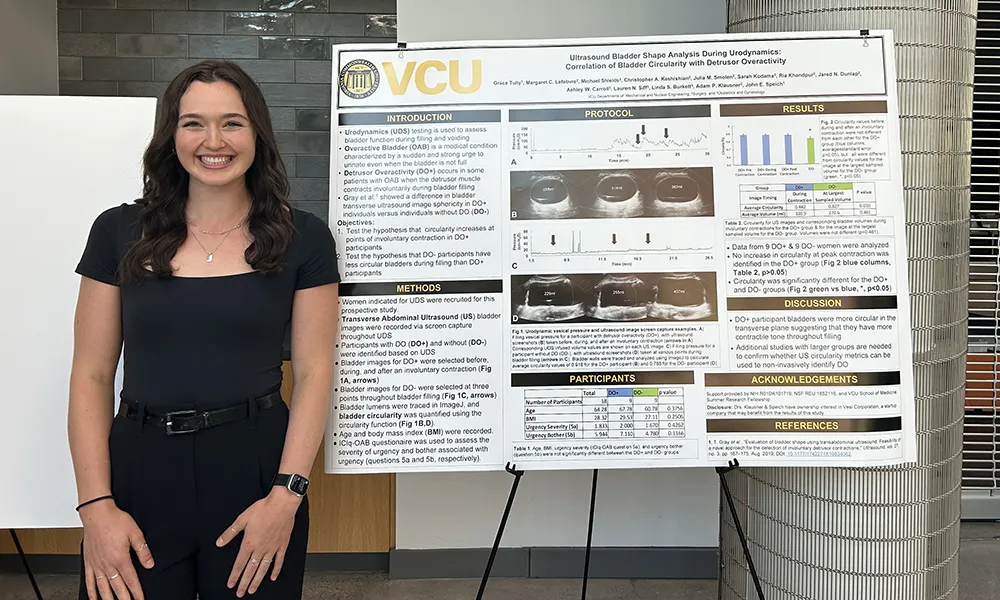
Engineering Hope Through Patient Advocacy
by Jaime Handley
Did you know that you bump up against the world of biomedical engineering each time you visit your doctor’s office?
Through the ingenuity of science and technology, millions of lives have improved because of devices like pacemakers, hearing aids, and prosthetic limbs, not to mention more familiar tools like blood pressure cuffs and the various monitoring systems we rely on in intensive care units.
However, for Grace Tully, a fourth-year biomedical engineering student, her work is more than engineering medically necessary devices; it’s about engineering hope and being a patient advocate.
“In the biomedical engineering field, the constant focus is that everything you do is to improve patient outcomes,” she says. “It’s the patients – they are No. 1.”
A Trajectory-Changing Injury
Grace has always had a natural knack for math and science, so when, during high school, her AP calculus teacher encouraged her to look at engineering, her curiosity piqued. Then, an anatomy/physiology class sealed the deal. Searching for opportunities in engineering, she realized she could fuse her love for math, science and the human body with a career in biomedical engineering.
Besides being a gifted STEM student, Grace was also a successful student-athlete. As a high school pole vaulter, she was considering athletic scholarships to various schools nationwide. But the summer before her junior year, she began having inexplicable hip pain. After six months of physical therapy and the belief that she was simply dealing with a strained hip flexor, doctors found that she had torn her labrum and was suffering from a hip impingement. Grace was facing invasive hip surgery at 17 and watching her chances of college pole vaulting slip away. But she soon discovered that God was in the details of her story, especially the parts she didn’t yet understand.
With an uncertain future, she began to take a different tack. Whereas she previously focused on schools with renowned track programs that would scholarship her college experience, she switched focus to her academic aspirations. As God would have it, she could find a school with the biomedical engineering program she was looking for and the resources to support her eventual return to pole vaulting. Though the winter of 2020 was one of the most challenging seasons of her young life, Grace now sees it as a tremendous blessing.
“My hip surgery is why I decided to go to George Fox, and that decision has dramatically changed the direction of my life,” she says.
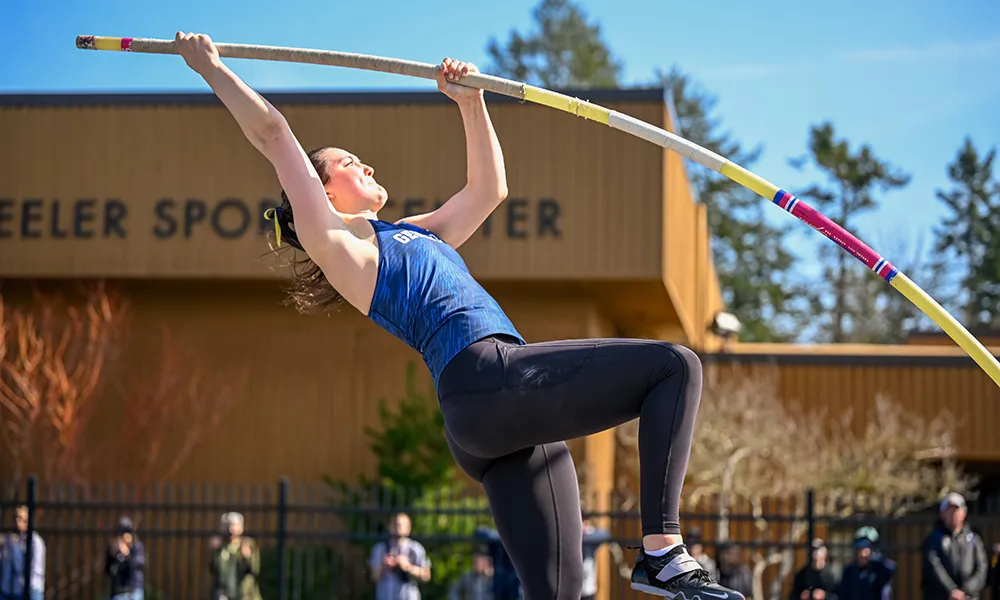
Success Through Balance
As a student-athlete in an academically rigorous major, Grace may have expected to be burning the midnight oil daily. And had her path taken her to other universities, she may have been doing just that.
However, as she found out, the support of her coaches at George Fox was about more than titles and trophies. They also wanted her to be a healthy and successful student, even if she sometimes had to leave practice early to focus on a project or study for an exam.
“George Fox has enabled me to succeed in academics and sports. I’m aware of the fact that this isn’t usually the norm, and I’m grateful,” she says.
She recently had the opportunity to go to nationals, where she won an All-American title and broke the George Fox school record at the conference championships. But she hasn’t done it all with a grind-it-out mentality.
“I’m not the kind of athlete who will stay up until 3 a.m. doing homework because I have to be at practice for hours. The fact that my coaches have supported me has enabled me to excel in my classes and succeed at the sport I’ve been blessed to do.”
Grace also found support from her professors, such as Dr. Nathan Slegers, a professor of mechanical engineering, who was willing to accommodate her training schedule.
“I would reach out to Dr. Slegers and say, ‘I have practice. Is there any other time you can meet with me?’ He set aside time once a week. I don’t think he knows how much that helped me confidence-wise in those classes.”
She now seeks to model the same tangible support and advocacy she received from her professors and coaches for other women in the engineering field. As a Rise Women’s Leadership Ambassador, Grace, with the rest of the Rise team, helps put on events to bring in female industry professionals who can speak about various topics that impact working women. For Grace, another part of Rise's mission is to hear what the engineering department is doing well and where it has room for improvement.
“One of my goals is to build more community and support with the women across different years of the biomedical engineering program – to be more of a voice for them.”
Advocating for Patients
As Grace, now a senior, prepares to move out of her university career and into the next phase of her journey, she is focused on work that makes a tangible difference in patients' lives and hopes to pursue a career in the medical device industry. She invested in two summer research programs that helped her get hands-on experience and see the outcomes that biomedical engineers affect through their work.
Her first opportunity came during a summer with the Richter Scholars Program at George Fox, after which her faculty mentor encouraged her to write an abstract summarizing her promising research findings to submit to the Biomedical Engineering Society. Grace’s paper was accepted, and she presented her findings at the BMES Annual Meeting in 2023.
This past summer, she applied to the Mechanobiology Summer REU Research Program with Virginia Commonwealth University. There, she worked in a lab aiding in the diagnosis of overactive bladder disease. Her research analyzed bladder circularity to determine whether ultrasound images alone could diagnose the disease without any other invasive approaches.
“I was able to be in the room with the women during the ultrasounds,” she says. “They were shocked that we would give our time to do this research in the hopes that, one day, future women wouldn’t have to undergo invasive diagnostic procedures. That was fulfilling!”
Grace’s contribution to the work enabled her to present at the 2024 BMES Annual Meeting in Baltimore, Maryland.
“My research was promising toward the professor’s ultimate hypothesis, so he encouraged me to attend the conference and present. The hope is that it will bring more awareness to his work and benefit future patients.”
Next Steps
As for her next steps as she embarks on her professional biomedical engineering career, Grace is poised to take her advocacy work into the field. She hopes to transition into the medical tech industry, where she can focus on improving communication between engineers, doctors, and the patients they serve.
“My whole job is asking how I can use my gifts from the Lord, whether those are technical or personal communication, to bless people,” she says. “That has tremendously affected my outlook on biomedical engineering as a whole.”
And with these gifts, Grace is engineering hope through her work – one patient at a time.
